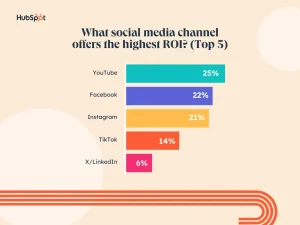
There are various methods to treat social media addiction. Therapy involves behavior modification and mindfulness. However, since social media addiction is not yet recognized as a medical condition, many health insurance companies do not cover it. Because of this, you may have to pay for the treatment yourself. Among the most common methods is cognitive behavioral therapy, which teaches the patient how to correct faulty beliefs and eliminate negative thoughts. The goal of this therapy is to help the patient move on with life.
Social media use has been found to trigger a chemical reaction in the brain called dopamine. The dopamine releases signals to the brain to continue the behavior. When the dopamine levels rise, the user feels good and is motivated to repeat the behavior. However, this dopamine release is only temporary. Similarly, other addictions involve positive reinforcement. Therefore, a healthy individual may have a genetic predisposition to social media addiction.
Social media addiction is a disorder in which an individual feels the need to be connected to other people on the internet. As a result, they feel anxious when they are unable to check their social media accounts. Additionally, they check their performance in real time, even if they are not on their device. The resulting negative emotional and physical effects can negatively affect a person’s relationships. Some people may even turn to risky behaviors in an attempt to feel better.
While social media addiction is not yet recognized as a clinical disorder, it is a growing problem in our society. Some people use social media in moderation while others are unable to control themselves. It is possible to get addicted to this behavior, but it is unlikely to result in any serious health problems. So, what are the symptoms of social media addiction? And how do we recognize it when we are suffering from it? There are many symptoms and treatments available for the condition.
As with any other addiction, social media use can negatively impact a person’s mental health. People who spend a significant amount of time using social media are less likely to interact with their friends and family. Additionally, social media can cause feelings of depression and loneliness. These effects are the same as the ones associated with gambling and shopping. If you suspect you or a loved one is suffering from social media addiction, it is important to seek professional help.
Studies have linked excessive social media use with negative mental health outcomes. In addition, frequent social media use is linked with low self-esteem. While social media has many benefits, it can lead to feelings of isolation and depression. Social pressure, comparing your life to others, and ignoring your own needs and responsibilities can lead to negative emotional reactions. You may feel self-conscious, anxious, or depressed. And you may even find yourself comparing yourself to others on social media.
Teenagers are especially susceptible to social media addiction. The social networks they use are a part of their social life, but excessive usage can be dangerous. Teens have an intense need to belong and may not realize that they’re not being authentic if they’re not active on social media. If your child is prone to social media addiction, it’s important to talk openly with them and create screen-free zones. You’ll be surprised how quickly they can become addicted to these apps.







